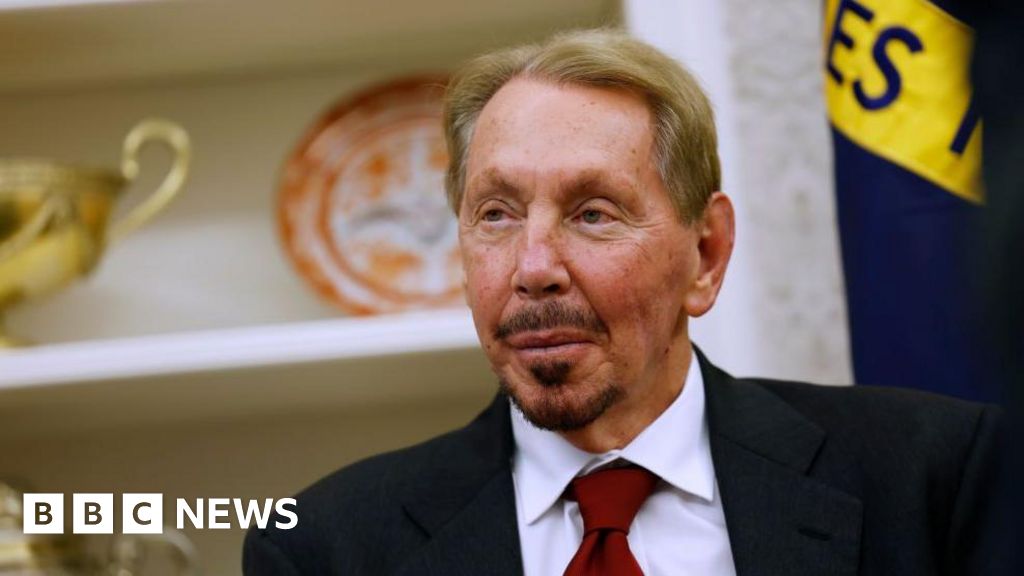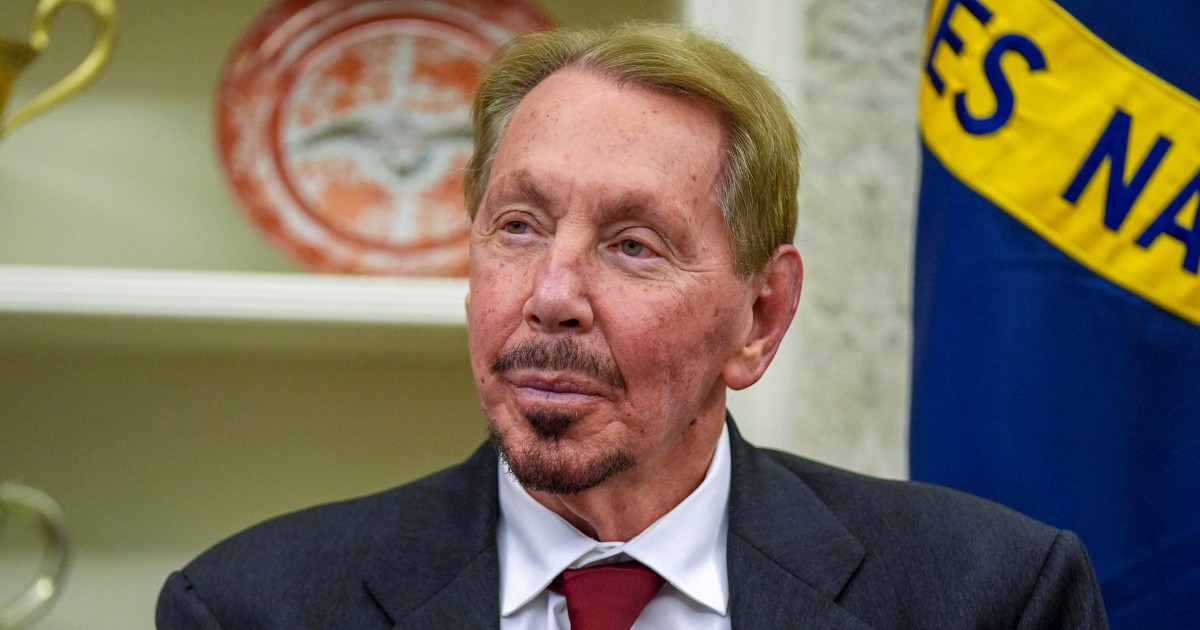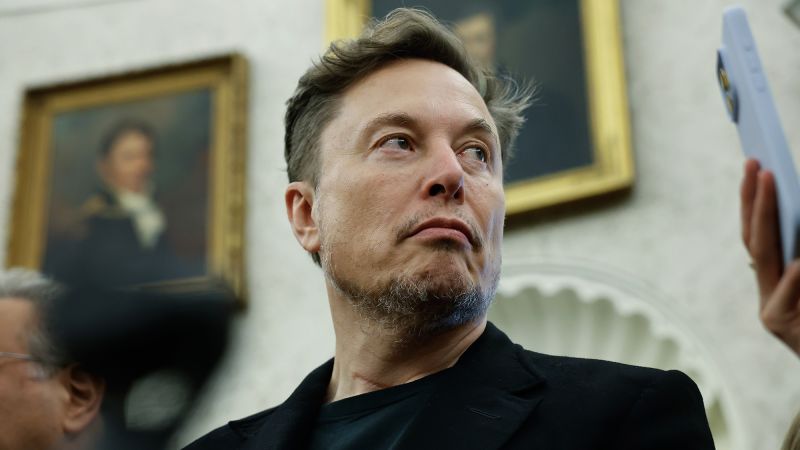Elon Musk's Controversial Call to 'Fight Back or Die' Sparks Debate in the UK

Introduction
Elon Musk's recent call for Brits to 'fight back or die' has sparked controversy and condemnation from a UK minister. This comes after the Tesla CEO made the statement at a march organized by a far-right activist in London. Musk's words have caused a stir, with many questioning his intentions and the impact they may have on the current social and political climate in the UK.
Key Details
Musk's comments come at a time of heightened tensions in the UK, with Brexit and divisive political leaders fueling anger and division. The march was organized by Tommy Robinson, a controversial figure known for his anti-Islam rhetoric and ties to far-right groups. Many have criticized Musk for aligning himself with such a figure and using violent language to address the crowd.
Some argue that Musk's words may incite violence and further divide the country, while others defend his right to free speech. However, the Prime Minister's response to Musk's statement reinforces the need for unity and peaceful discourse in these turbulent times.
Impact
Musk's call to 'fight back or die' may have serious consequences, both for himself and for the UK. As a prominent figure in the business world, his words hold weight and can influence public opinion. This has sparked a larger conversation about the responsibility of public figures and the impact their words can have
About the People Mentioned
Elon Musk
Elon Reeve Musk, born on June 28, 1971, in Pretoria, South Africa, is a prominent entrepreneur and business magnate known for founding and leading several transformative technology companies. He holds dual citizenship in Canada and the United States and earned bachelor's degrees in physics and economics from the University of Pennsylvania in 1997. Musk began his entrepreneurial career in the 1990s by co-founding Zip2, a software company, and later X.com, which evolved into PayPal, an online payment system acquired by eBay in 2002. In 2002, Musk founded SpaceX, a pioneering aerospace manufacturer and space transport services company, where he serves as CEO and chief engineer. SpaceX is notable for its advancements in reusable rocket technology and commercial spaceflight. In 2004, he joined Tesla Motors as an early investor and took on the roles of CEO and product architect in 2008, driving the company to the forefront of electric vehicle manufacturing. Musk also co-founded Neuralink in 2016, focusing on neurotechnology, and founded The Boring Company in 2017, which develops tunneling and infrastructure projects. In 2015, Musk co-founded OpenAI to promote artificial intelligence research but later left due to differences in vision, subsequently founding xAI. In 2022, he acquired the social media platform Twitter, rebranding it as X in 2023, and has been involved in various business and political activities, including a brief advisory role in the Trump administration's Department of Government Efficiency in early 2025. Musk is recognized as one of the wealthiest individuals globally, with an estimated net worth of $500 billion as of October 2025. His career is marked by significant influence across sectors including space exploration, electric vehicles, AI, social media, and infrastructure development, with ongoing legal and regulatory scrutiny related to his business practices and investments. He is also known for his complex personal life, including fathering 14 children[1][2][3].
About the Organizations Mentioned
Tesla
Tesla, Inc. is a pioneering American electric vehicle (EV) and clean energy company headquartered in Texas, with a mission to accelerate the world’s transition to sustainable energy[1]. Founded in 2003 by engineers Martin Eberhard and Marc Tarpenning, and later joined by Elon Musk, who became the company’s driving force and public face, Tesla has grown from a niche startup into a global leader in EVs, energy storage, and solar technology[1]. ## What Tesla Does Tesla designs, manufactures, and sells high-performance electric vehicles, including the Model S, Model 3, Model X, Model Y, Cybertruck, and the upcoming affordable model[4]. Beyond automobiles, Tesla produces large-scale battery storage systems (Powerwall, Powerpack, Megapack) and solar energy products (Solar Roof, Solar Panels), aiming to create a fully integrated sustainable energy ecosystem[1]. The company operates six massive, vertically integrated factories across three continents, employing over 100,000 people who handle everything from design to service in-house[1]. ## History and Key Achievements Tesla’s breakthrough came with the 2008 launch of the Roadster, the first highway-legal all-electric sports car. The company then disrupted the auto industry with the Model S sedan (2012), which set new standards for EV range and performance. The Model 3, introduced in 2017, became the world’s best-selling electric car, proving that EVs could be both desirable and mass-market[1]. Tesla’s Gigafactories, sprawling production facilities, have enabled rapid scaling and cost reductions, while its proprietary Supercharger network has addressed range anxiety for drivers. ## Current Status and Notable Aspects In 2025, Tesla continues to dominate the EV market, producing over 447,000 vehicles and delivering nearly 497,000 in Q3 alone[5]. The company has avoided over 20 million metric tons of CO₂
Brexit
Brexit is not an organization but rather a term that refers to the United Kingdom’s withdrawal from the European Union (EU). The word itself is a portmanteau of “British exit,” and it has become a globally recognized shorthand for one of the most significant political and economic events of the 21st century. On June 23, 2016, the UK held a referendum in which 52% of voters chose to leave the EU, setting in motion a complex process that would reshape the country’s relationship with Europe and the world. The formal process began on March 29, 2017, when the UK government invoked Article 50 of the Lisbon Treaty, starting a two-year countdown to departure. After years of negotiations, political upheaval, and multiple delays, the UK officially left the EU on January 31, 2020. This historic move made the UK the first country ever to exit the EU, marking a new chapter in its economic and political trajectory. Brexit’s impact is far-reaching, especially for business and technology. The UK’s departure from the EU’s single market and customs union has led to changes in trade regulations, immigration policies, and regulatory frameworks. Businesses now face new challenges and opportunities as the UK seeks to establish independent trade agreements and regulatory standards. Technology companies, in particular, must navigate evolving data protection laws and cross-border data flows. Key achievements of the Brexit process include the restoration of national sovereignty and the ability for the UK to set its own laws and trade policies. However, the transition has also brought economic uncertainty and complex negotiations, especially regarding Northern Ireland. Today, Brexit continues to influence UK policy, business strategy, and international relations. For those interested in business and technology, Brexit represents a dynamic landscape of regulatory change, innovation, and global repositioning.
Tommy Robinson
Tommy Robinson is the pseudonym of Stephen Yaxley-Lennon, a British far-right activist best known as the founder and former leader of the English Defence League (EDL), established in 2009. The EDL is a far-right, nationalist group primarily focused on opposing what it terms "Islamic extremism," though it has been widely criticized for promoting Islamophobia and inciting violence through its aggressive rallies and demonstrations across England[1][2][3][5]. Robinson's background includes earlier involvement with the British National Party (BNP), a white nationalist and far-right party. Unlike the BNP, which emphasized explicit white supremacy and antisemitism, Robinson and the EDL framed their agenda around anti-Muslim rhetoric, especially targeting Islamist extremism in Muslim communities. This focus helped the EDL rapidly gain attention and followers amid post-9/11 anxieties and the 7/7 London bombings' aftermath[1][3]. The organization grew quickly, holding numerous highly publicized marches, often accompanied by violence and clashes with counter-protesters. Robinson himself became a prominent, articulate media figure, using social media and public appearances to spread his message. His leadership style was energetic and confrontational, which helped solidify his role as the group's face[1][2]. Key figures besides Robinson included his cousin Kevin Carroll and alleged financial backer Alan Ayling, an IT consultant, though Ayling’s exact role remains less visible[1]. Over time, Robinson has faced multiple legal issues, including convictions related to violent offenses and contempt of court. His imprisonment drew international attention, including support from figures like Elon Musk, who framed his incarceration as unjust[2]. Currently, Robinson remains a controversial figure, continuing to influence far-right and anti-immigration discourse in the UK. The EDL itself has diminished in prominence but sparked numerous offshoots and inspired other far-right movements. Robinson's role highlights the intersection of social media, street activism, and far
Prime Minister
The **Prime Minister** is the head of government in parliamentary systems, primarily responsible for setting government policy, overseeing the operation of government agencies and the Civil Service, and appointing members of the Cabinet and ministers. The Prime Minister leads the executive branch and is the principal government figure in the legislature, often the House of Commons or equivalent, depending on the country[1][2][5]. The role originated in 17th-century France but was formalized in Britain during the 18th century, evolving into a central figure in British and Commonwealth governance. The British model, exemplifying a "strong prime minister" system, has influenced many countries including Canada, Australia, India, and New Zealand[4][5]. The Prime Minister’s power includes controlling the legislative agenda, managing the civil service, determining government structure, and crisis management during national emergencies[1][4]. Key responsibilities include maintaining a parliamentary majority to pass legislation and budgets, chairing Cabinet meetings, setting agendas for Cabinet committees, managing relationships with opposition parties and devolved governments, and representing the government in Parliament and to the monarch or head of state[1][2]. The Prime Minister may also call elections and has significant influence over national policy and economic priorities[4]. Historically, the office has grown from informal leadership to a constitutionally recognized position with broad executive powers, though the extent varies by country. For example, in semi-presidential systems like Lebanon, the Prime Minister shares executive power with a President but must maintain parliamentary support[3]. In Australia, the Prime Minister is chosen by the governing party and must maintain majority support in the House of Representatives[6]. Currently, the UK Prime Minister is The Rt Hon Sir Keir Starmer KCB KC MP, who leads the government with the support of the Cabinet and ministers[2]. The Prime Minister’s role remains pivotal in shaping government direction, policy implementation, and political leadership, making it a critical focus for those interested in business and technology policy impacts globally.

















